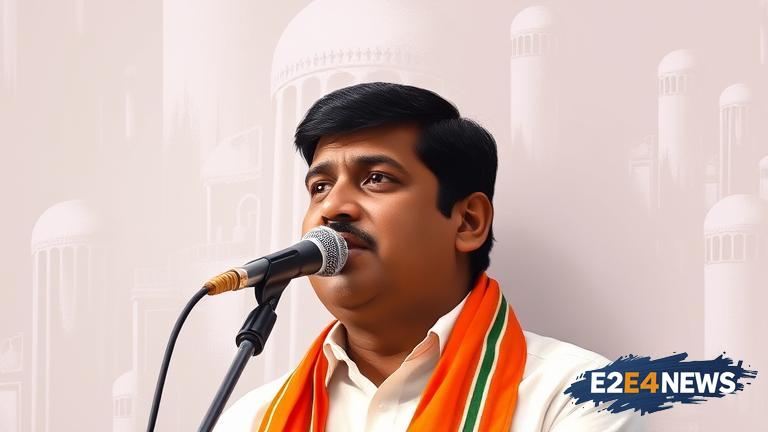The RSS song row has taken a new turn with Congress leader DK Shivakumar stating that he is ready to apologize for his remarks on the issue. The controversy began when Shivakumar criticized the RSS song, calling it a ‘song of the Sangh’ and not the national song of India. The RSS and BJP leaders quickly responded, condemning Shivakumar’s remarks and accusing him of being anti-national. The issue has sparked a heated debate, with many questioning Shivakumar’s intentions and others defending his right to free speech. Shivakumar has now clarified that he respects the national anthem and the national song, but has issues with the RSS song being played at government events. He has also stated that he is willing to apologize if his remarks have hurt anyone’s sentiments. The RSS has welcomed Shivakumar’s apology, but has also demanded that he clarify his stance on the issue. The controversy has put Shivakumar on the backfoot, with many within his own party questioning his decision to criticize the RSS song. The issue has also sparked a wider debate on the role of the RSS in Indian politics and the limits of free speech. Many have argued that Shivakumar’s remarks were unnecessary and have given the BJP and RSS a chance to attack the Congress. Others have defended Shivakumar, saying that he has the right to express his opinions and that the RSS song is not the national song of India. The controversy has also highlighted the sensitive nature of the issue, with many Indians being deeply passionate about the national anthem and national song. The RSS has a long history in India, and its song is seen as an important part of its identity. However, many have questioned the RSS’s role in Indian politics, accusing it of promoting a divisive agenda. The controversy has also sparked a debate on the role of the media in shaping public opinion. Many have accused the media of sensationalizing the issue and giving it more attention than it deserves. The issue has also highlighted the challenges faced by politicians in India, who often have to navigate complex and sensitive issues. Shivakumar’s decision to apologize has been seen as a pragmatic move, aimed at diffusing the controversy and avoiding further backlash. However, many have questioned whether the apology will be enough to resolve the issue, given the strong emotions involved. The controversy has also sparked a wider debate on the state of Indian politics, with many arguing that the country needs more nuanced and respectful discourse. The issue has also highlighted the importance of understanding and respecting different perspectives, even if one disagrees with them. In conclusion, the RSS song row has sparked a heated debate in India, with many questioning Shivakumar’s remarks and others defending his right to free speech. The controversy has put Shivakumar on the backfoot, but his decision to apologize has been seen as a pragmatic move aimed at diffusing the issue. The debate is likely to continue, with many Indians remaining deeply passionate about the issue.
